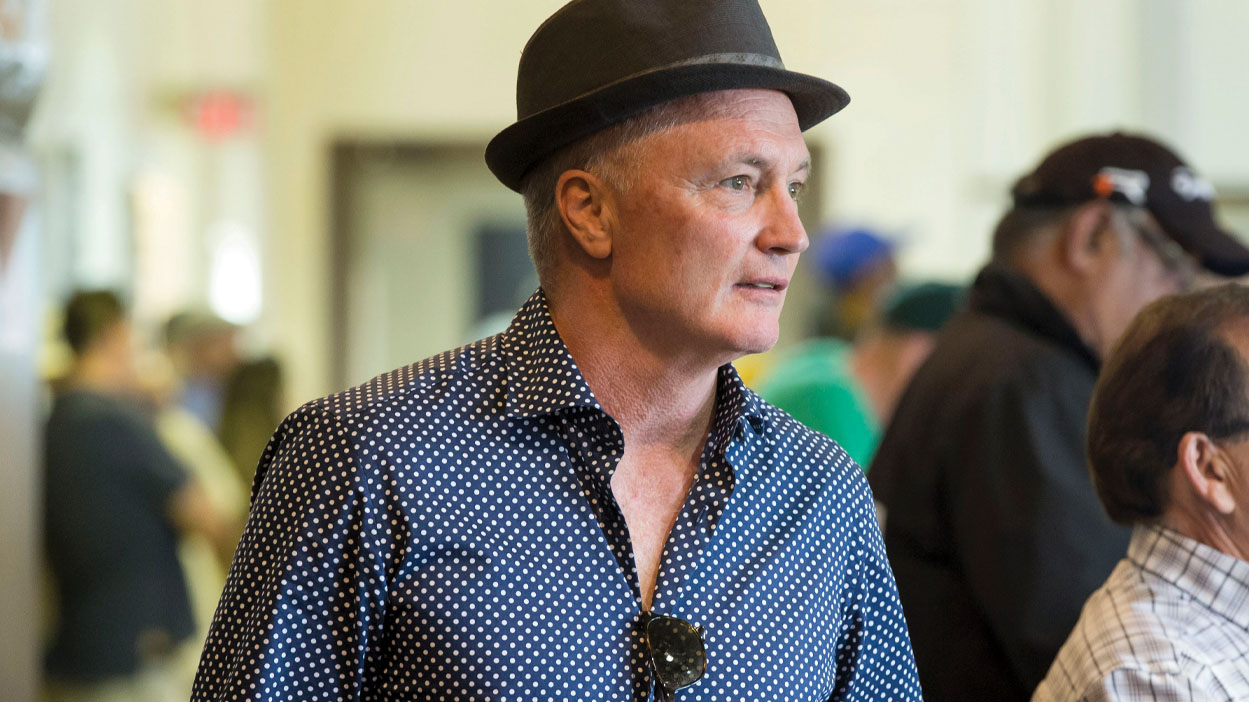As owner and operator of the successful Hill ‘n’ Dale Farms in King City, ON, Glenn Sikura has carried on the legacy begun by his father, Hall of Famer John Sikura. Glenn has developed Hill ‘n’ Dale into one of the premier breeding and sales farms in North America and his brother John, Jr. has done the same with Hill ‘n’ Dale in Kentucky. Glenn has bred and sold many stars of Canadian racing and foals mares for a number of prominent American and Canadian breeders.
Glenn has been influential in Canadian racing as president/director of the national office of the Canadian Thoroughbred Horse Society. He was a long-time president of the Ontario division of the CTHS and past president of the Canadian Horse Racing Hall of Fame, past president of the Ontario Horse Racing Industry Association (OHRIA), and a former director of both the Breeders Cup Limited and the Thoroughbred Owners and Breeders Association (TOBA).
Glenn is currently the Chief Steward of the Jockey Club of Canada.
What are the most critical challenges facing the industry in Canada today?
“There are a few and they include a lack of owners, horse supply, building a fan base, sales prices and industry uniformity.”
What needs to change about the industry in the next 5-10 years?
“I think more so than anything we need to have a unified force in this country. We need to stand together as breeders, owners, trainers and racetracks. We have to know that we need to work with government so we can’t pull each other apart.
“It is crucial that we have to work hard to get our message out; that this industry is important to the economics and culture of the country.”
How can you help affect that change?
“I want to continue to be an advocate for the industry by being positive and do what I can to bring people to work together rather than allowing differences to fester.
“In my role at the Jockey Club of Canada we have undergone a study to show the economic impact that Canada receives through the horse industry. Through education [of government and public] we can have an ally in the government; show the importance of the industry to the country and change the look that we just need a handout.
“We are constantly working on Section 31 of the Tax Law to seek equitable tax treatment.
“In so many other businesses you can write off one business against another. That is not available in horses. Why can you own so many other businesses that potentially don’t make money and write them off but you can’t do that with horses? It doesn’t seem to be equitable tax treatment there. So we are trying to get Section 31 resolved so that people have people have ability to do that.”
Where do you see the thoroughbred industry in Canada in 10 years?
“We see Woodbine undergoing major transformation so hopefully there will be new revenue streams for owners and breeders. Alberta has a new track in Century Mile and that may entice new participation in the industry. If we stay together and work hard we can preserve the legacy people before us left.
“I think we need to be unified force and not go to war with one another. But it is going to be a difficult road ahead. As Peter Hardy, one of the original directors of the Ontario Horse Racing Industry Association once said, ‘We swim together or we sink separately.’”


